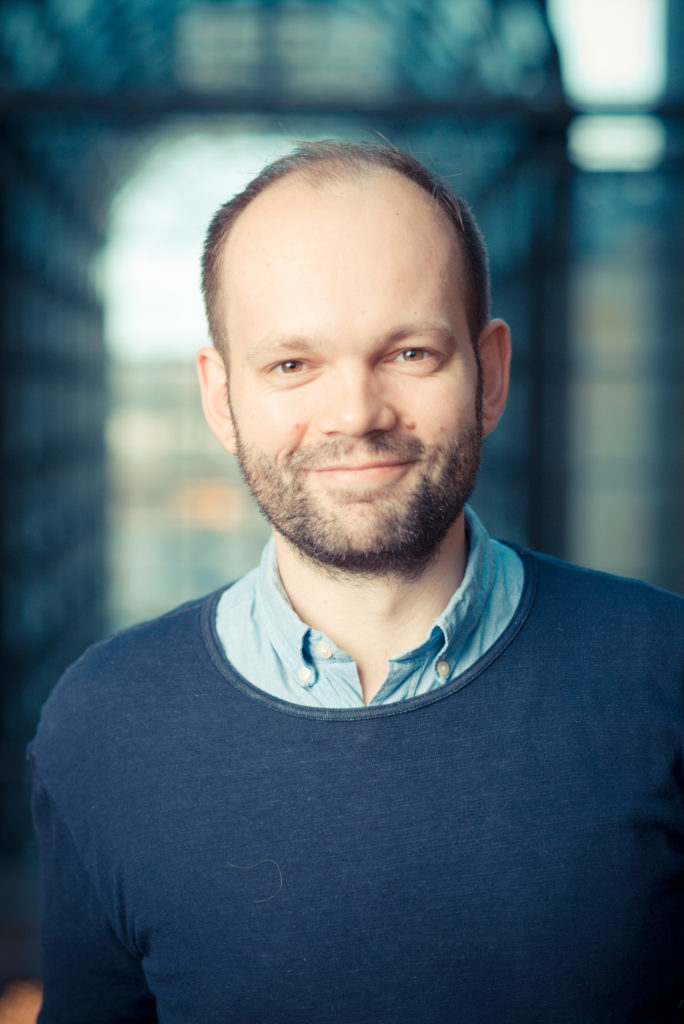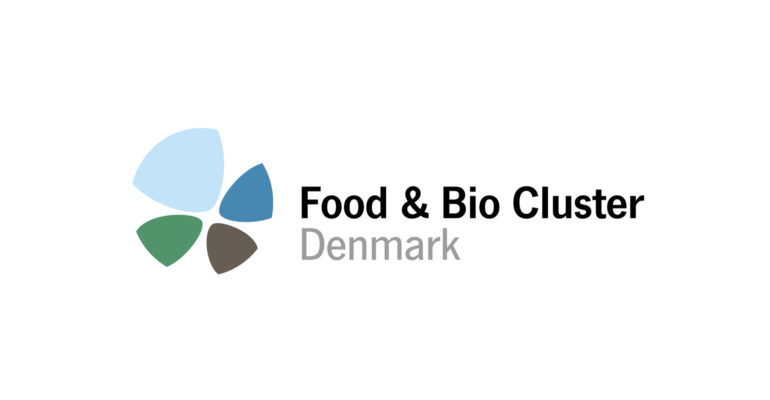We are pleased to announce that Food & Bio Cluster Denmark has joined the AVF.
In conversation with Claus Gunge Ellegaard Mortensen (Head of Danish Vertical Farming Network – part of Food and Bio Cluster Denmark) and Ramin Ebrahimnejad (Vice-Chair at the Association for Vertical Farming).

Claus Gunge Ellegaard Mortensen- Food & Bio Cluster Denmark
Read on to learn more about Food & Bio Cluster Denmark, the future of the Danish Vertical Farming Industry, and its critical role in helping to revolutionize food systems both on a national and international scale. Claus and Ramin cover the current challenges related to Vertical Farming’s development, including the importance of making investments, subsidy programs, and R&D funding more accessible in Europe. Claus explains the work Food & Bio Cluster Denmark is doing in support of this to help Vertical Farming achieve its potential.
Food & Bio Cluster Denmark is a cluster organization for food and bio-resources in Denmark. They provide a unifying platform for Danish and international companies and knowledge institutions to support innovation, collaboration, and growth. With over 290 members currently, they draw on national and international resources to provide companies with access to networking, business development, innovation, and financing opportunities throughout the whole value chain from farm to fork.
Claus:
We enhance innovation and competitiveness in the agrifood ecosystem as a whole by providing a platform for knowledge sharing and by putting the right people together to form innovation and commercial partnerships in Denmark and abroad.
We work mainly in two ways: mainly in broader events where you get inspiration, contacts, present your technology, and find new partners (that’s both on a Danish and international level).
Denmark has all the conditions to make an impact and be an important global player within the VF industry because we are good at plant production, food quality, food safety, and controlled environments We know water and nutrients, have a huge focus on sustainability, we are highly digitalized, have an efficient horticulture sector and we have strong R&D institutions and a world-class gastronomy scene. Last but not least we have a strong tradition to work together across different industries and within the private and public sectors. From a commercial perspective, the retailers have also welcomed the new products coming out of the vertical farms in Denmark. For me, it’s a perfect mix.
Denmark is a small and open economy, so in order to make a green impact on a global scale, Danish vertical farm solutions need to be implemented abroad. That’s what I envision and want to accelerate in Danish Vertical Farming Network.
We are working with the Danish Foreign Ministry on providing exports for the Danish companies and we are also working with investors in Denmark who are supporting new companies, which is really exciting because that’s also where the international perspective and new solutions and insights and networks bring even more value to us as a cluster and our members of course.
Ramin:
You’ve been working with investors and startups as well […] In the US we mostly see private funds and venture funds. We don’t see much activity from venture funds in Europe, it’s mostly public funds. Is Europe moving towards becoming more like the US?
Claus:
There is inefficiency, a problem there I think, but it is great to see that Vækstfonden, the large public investment entity investing in some of the early projects and companies. We need more of that to create a strong ecosystem and to fulfill the potential. So it’s definitely moving in the right direction. The investors play a very important role and that’s something we are also working on in Food and Bio Cluster Denmark.
Ramin:
What needs to be done to change the regulation and support systems/subsidy programs in Denmark?
Claus:
Ministries and other public stakeholders see Vertical Farming solutions as one of the solutions for the future. We are working with the different authorities [and] I think it’s quite cool that the Danish authorities are actually proactive and helping this quite new industry. Right now I don’t see any regulations changing in the near future, to be honest, and the most sustainable industries are those not dependent on changes in regulations. I don’t know, what do you think? What kind of regulations will change Denmark?
Claus:
There is a lot of discussions right now but I think at some point we’ll find a steady development. Some of the players right now won’t be in the market in 1 year and someone new will be…in the very beginning of an industry it is normal to see these different turns back and forth.
Ramin:
I am seeing positive signals from Brussels that they are moving towards supporting plant-based production. We are also seeing more Vertical Farms being funded. But I hope that this year after the Food Systems Summit we’ll see some sort of framework and guidelines from the UN and member states. One of the action tracks that is considering food production has a subcategory in innovation. We’ve been in contact with them and I hope this new novel industry will be part of the framework for the food system transition.
Claus:
We’re working on a few projects as well on local supply chains [I think] maybe in Denmark we should have a higher demand for quality. Vertical Farming is a really interesting product development platform as you’re more agile, you’re faster. [One of our members] produces an exotic type of cabbage. To be able to get that product is interesting from a restaurant point of view. And also how do you put a price on that?
Ramin:
I think the first impression of the industry will be important: the taste of it, the aroma, the texture, the freshness, nutritional value, and also the food safety side of it. When you say this is a circular production system, there hasn’t been any runoff, leaching, or emissions (depending on the energy source of course) and there hasn’t been any pesticide use. So it is good for your health and the planet’s health. I think that will create awareness.
European consumers are demanding good and local food. I think that’ll increase too, and there will be a balance of different solutions including nature-based solutions and technical advancements like Vertical Farms.
Claus:
Everything is not just perfect. One of the things we’re going to focus on together with Copenhagen University is sustainability. For instance, 50% of the energy of the total lifetime of the building is when you construct it. Should that count as part of the life cycle analysis of the products?
Our cluster works in many different subsectors in the value chain and one of the things we know is people don’t buy it for sustainability (they buy it once or twice) so going back to the taste, experience, the storytelling – and then if it’s also sustainable, that’s definitely value-added but again we should avoid greenwashing.
[…] I think the main USP should be the taste. And the product itself. Because that’s where you create a long-term customer.

Image credit: Food and Bio Cluster, Denmark
Ramin:
I totally agree with you that we need these LCA studies. But there’s a problem with system boundaries – do we want to consider the energy that went into building a tractor etc for conventional farming? So if all the factors are considered we have a level playing field and then sustainability can be addressed.
One of the goals of the certification scheme we are working on is to make Vertical Farming more sustainable […] This will help our arguments to the policymakers: this is a very novel industry but give it some time and it will be the most sustainable method of production.
Talking about the research funding, we had a discussion about how there are a lot of research knowledge gaps. Where do you see the funding coming from and what topics would you like to see addressed in the future?
Claus:
I think until now, hopefully, it will change in the future, but we haven’t seen enough money for R&D within this space […] But hopefully, that will change because you know our 2030 and 2050 ambitions. We need to invest more in R&D within the whole value chain which will also include Vertical Farming. But again, the developments within the last year or even half-year have been really fast. That proves that VF tech serves a role within the food system and proves that they need more R&D funding.
[…] Vertical Farming is an enabling tool. We need to look more at a holistic view of energy use in the agriculture sector. It’s also our ambition, of course, to get more funds into this area.
Ramin:
I think with the focus on the food system transition which we are seeing at the EU and UN levels, I predict we will see more and more funding both on research and on SMEs and startups working in this field. I’m optimistic about that one. But to play devil’s advocate, what are you seeing as the biggest challenge or hurdle on the development of Vertical Farming in Denmark?
Claus:
Two things: educating the consumer, and getting the price of the final product down.
[VF produce is] expensive to produce, so getting production prices down is key. If you suddenly can become competitive then you should emphasize sustainability. but you must be competitive in the most important factor which is the price. In order to do that you need R&D, more efficient systems, more innovation, and more partnerships. I think also the cooperation between horticulture and Vertical Farming is something we’re working for because we see a win-win for both parties.
Ramin:
Where do you see the Danish Vertical Farming industry in 10 years?
Claus:
Hopefully, we are just as we are with many other agricultural industries when it comes to agricultural implements, livestock, efficiency within the whole value chain, food safety, etc. We are among the world’s leading. People in the Middle East and in big cities far from the nearest safe food producers etc, they’re turning their heads towards Denmark to find a new solution. But in order to reach that point – to be a huge exporter of tech and advisory – we need a good home market where farmers can develop themselves. We need a good ecosystem where tech providers can develop themselves.
So, hopefully, that’s the situation where we’ll have a lot of big players in the export market selling sustainable food solutions to the world.
You can get more information about Food & Bio Cluster Denmark on their website.
Transcribed by Laura Nelson



Comments are closed.